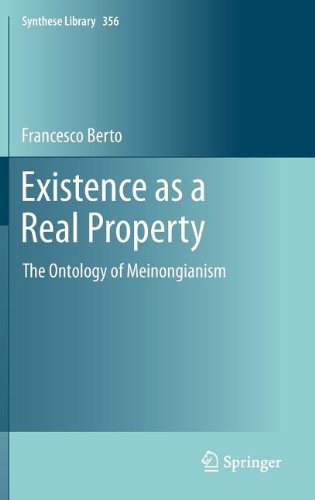

Most ebook files are in PDF format, so you can easily read them using various software such as Foxit Reader or directly on the Google Chrome browser.
Some ebook files are released by publishers in other formats such as .awz, .mobi, .epub, .fb2, etc. You may need to install specific software to read these formats on mobile/PC, such as Calibre.
Please read the tutorial at this link: https://ebookbell.com/faq
We offer FREE conversion to the popular formats you request; however, this may take some time. Therefore, right after payment, please email us, and we will try to provide the service as quickly as possible.
For some exceptional file formats or broken links (if any), please refrain from opening any disputes. Instead, email us first, and we will try to assist within a maximum of 6 hours.
EbookBell Team

4.0
26 reviewsThis profound exploration of one of the core notions of philosophy—the concept of existence itself—reviews, then counters (via Meinongian theory), the mainstream philosophical view running from Hume to Frege, Russell, and Quine, summarized thus by Kant: “Existence is not a predicate.” The initial section of the book presents a comprehensive introduction to, and critical evaluation of, this mainstream view. The author moves on to provide the first systematic survey of all the main Meinongian theories of existence, which, by contrast, reckon existence to be a real, full-fledged property of objects that some things possess, and others lack. As an influential addition to the research literature, the third part develops the most up-to-date neo-Meinongian theory called Modal Meinongianism, applies it to specific fields such as the ontology of fictional objects, and discusses its open problems, laying the groundwork for further research.
In accordance with the latest trends in analytic ontology, the author prioritizes a meta-ontological viewpoint, adopting a dual definition of meta-ontology as the discourse on the meaning of being, and as the discourse on the tools and methods of ontological enquiry. This allows a balanced assessment of philosophical views on a cost-benefit basis, following multiple criteria for theory evaluation. Compelling and revealing, this new publication is a vital addition to contemporary philosophical ontology.